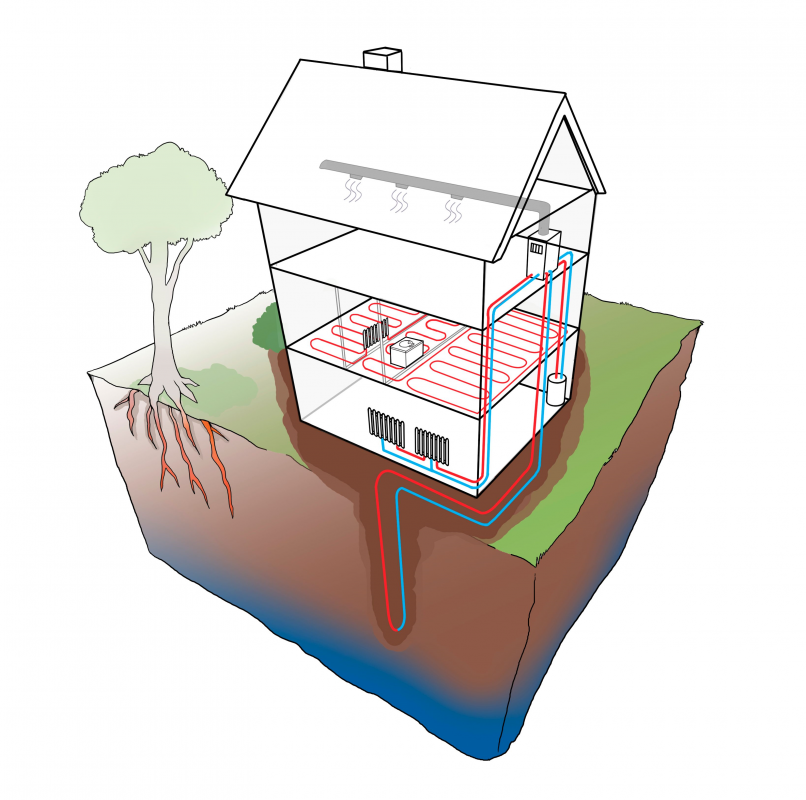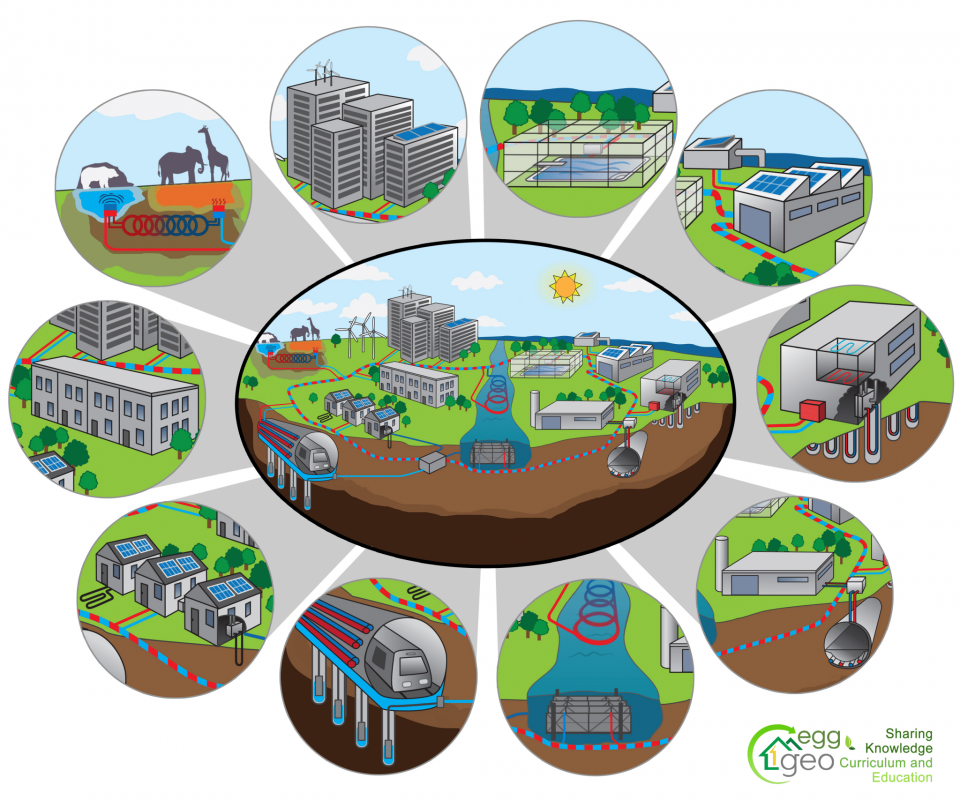Geothermal Ground Source Heat Pumps
Geothermal HVAC systems have been used for more than 70 years in the U.S. and beyond. Geothermal Heat Pumps work with nature, not against it, and they emit no greenhouse gases.
Geothermal HVAC systems are becoming common features of eco-friendly homes and communities as part of the growing green building movement. Unlike ordinary heating and cooling systems, geothermal HVAC systems do not burn fossil fuel to generate heat; they simply transfer heat to and from the earth.

Geothermal systems require little maintenance. When installed properly, the buried loop lasts for generations. The unit’s fan, compressor, and pump are housed indoors, protected from the harsh weather conditions, so they tend to last for decades. Usually, periodic checks and filter changes and annual coil cleaning are the only required maintenance.
There are many different ways to engineer a geothermal exchange system, including:
- Closed loop vertical exchange: Can be configured in 2-pipe, 4-pipe, concentric and many more adaptations.
- Closed loop horizontal exchange: Can be configured in many various ways to apply open-trench based exchangers.
- Direct Geothermal Exchange (DGX): In these geothermal heat pumps, the refrigerant is circulated in pipes buried in the ground or submerged in water.
- Closed loop pond/lake/ocean: These can be configured to use fabricated plate exchangers, or polyethylene pipe arranged in the body of water.
- Closed loop energy piles: Like closed loop vertical exchange, these can be adapted in many different ways.
- Open standing column wells: Primarily allows for reduction in boreholes, allowing for a smaller footprint. Needs specific geology (competent bedrock).
- Open Class V well doublets: Primarily allows for reduction in boreholes, allowing also for a smaller footprint. Needs a specific geology (abundant aquifer). Great for large-scale applications in hot and humid climates (cooling dominant).

Choosing/Installing a Geothermal Heat Pump: https://www.energy.gov/energysaver/choosing-and-installing-geothermal-heat-pumps
Operating/Maintaining Your Heat Pump: https://www.energy.gov/energysaver/heat-and-cool/heat-pump-systems/operating-and-maintaining-your-heat-pump
“Geothermal for All” YouTube channel: https://www.youtube.com/channel/UCt5kZjl1zisTlO4-BaGa00Q/videos
Department of Energy: https://www.energy.gov/energysaver/heat-and-cool/heat-pump-systems/geothermal-heat-pumps
Geothermal Exchange Organization (GEO): https://www.geoexchange.org/
International Ground Source Heat Pump Association (IGSHPA): https://igshpa.org/
Jay Egg's Kids Corner: https://egggeo.com/kids-corner/
Our Hidden Powers: A new children's book focused on geothermal energy: https://www.baseloadcap.com/our-hidden-powers/
Geothermal Heat Pumps are the Answer to Eliminating Electric Grid Spikes (like we saw in Texas) by Jay Egg
High-rise multi-family apartments to pioneer first-ever geothermal/wastewater heat recovery system by Nicole Krawcke
(Note: if you are an industry professional and would like to contribute an article to the Geothermal Rising blog, please contact Brian Schmidt at bschmidt@geothermal.org)
